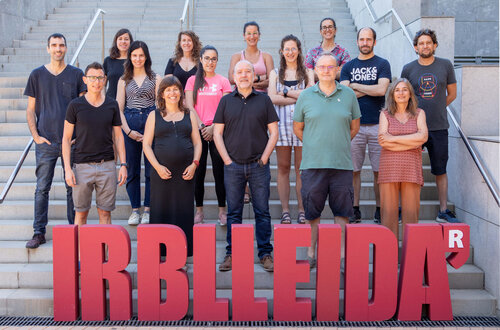A project with IRBLleida participation, selected in the framework of the CaixaResearch call for Health Research 2021 of the Fundació "la Caixa"
The Metabolic Pathophysiology group of the UdL-IRBLleida participates in a project to improve the understanding of Alexander disease, a rare disease that progressively destroys the white matter of the brain.
The Fundació "la Caixa" has announced today the 30 projects selected in the CaixaResearch call for Health Research 2021. Among them is the project 'Improving the understanding of Alexander disease' in which the Institute for Research in Biomedicine of Lleida (IRBLleida) participates, through the Metabolic Physiopathology group, and which is led in Lleida by Mariona Jové, professor at the University of Lleida and researcher at the IRBLleida.
Alexander disease is a rare disease of genetic origin that progressively destroys the white matter of the brain and neurons, leading to neurological disorders and death. The disorder is due to mutations in glial fibrillary acidic acidic protein (GFAP) found in astrocytes, a type of glial cell that is essential for the proper functioning of the nervous system.
The project investigates how GFAP mutations in astrocytes cause significant damage to both these cells and neurons, focusing on the study of the role of metabolic pathways involved in protein and lipid oxidation in the development of this disease. This knowledge will also help to understand the mechanisms of other more frequent neurodegenerative diseases.
The research is led by Dolores Pérez-Sala, from the Centro de Investigaciones Biológicas Margarita Salas-CSIC, and is carried out in consortium with the Brain Center, University Medical Center Utrecht (Netherlands), the University of Copenhagen (Denmark), the University of Gothenburg (Sweden) and the Institute for Research in Biomedicine of Lleida (IRBLleida). The project has received a grant of 1 million euros.
With these grants, the "la Caixa" Foundation aims to promote research projects carried out by centres in Spain and Portugal in collaboration with other international centres, with the ultimate aim of providing results that benefit people's health and well-being. These are biomedical and health research projects of excellence from research centres and universities in Spain and Portugal, which have been endowed with a total of 22.1 million euros because they will be developed over the next three years.

The Metabolic Physiopathology group






